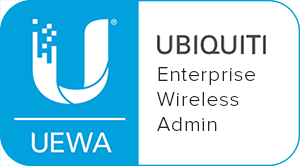Business Data Levels At An All Time High
In the age of big data, business data storage is as important as ever. Websites, databases, customer contact info, metrics, contracts, spreadsheets, emails and more, are all vital sources of business information. This data needs to be stored securely, but also accessible. From small to large business operations, here’s how to go about thinking and planning for business data storage needs.
Plan for Growth
As any business grows, so to do business data needs. Planning and creating a business data storage strategy that accommodates for growth is crucial. Data storage needs are not always an easy subject to navigate. It depends on various factors, such as the specific industry or the type of customers that a business operates in. For example, the business data needs of an walk-in retailer, are going to be very different to that of a financial services company, or an AI startup. An e-commerce retailer may have a significant number of online customer generated transactions and data. A financial services company will have a need for highly secure data storage. In the AI space, this is likely to have demanding data needs to both store and access code and / or applications. But whatever the case, plan data storage for scaling, to accommodate any future business growth.
Determine Business Needs
You cannot plan for data storage before knowing how much storage your business needs. The amount of storage will depend on how big a business is and its operating industry. This is where the choice between MLC and TLC data storage technology comes into play. Whatever the case, a simple strategy to assess the needs of your business is to first look at the common software used and the largest files created or used in the process. Determine which servers store your data and the applications that run in them.
How Easy Is It To Get Information & Run Applications?
The security of your IT infrastructure should be robust and persistent even when your business is smaller. Indeed, new or smaller e-commerce businesses are not exempt from cyber attacks, and unlike bigger organizations, they stand to lose the most. The smaller businesses may not have the resources to recover from an attack. With that in mind, the best practices to reduce the risk include data encryption to prevent exploitation. Train staff to avoid human error as much as possible.
Explore Your Options
Data storage options available to your business are on-site and cloud storage. Cloud services are by third-party providers on remote servers, and the option is typically cheaper and easier to scale. Keep in mind that cloud services depend on an Internet connection, and if there’s an outage, the storage remains inaccessible for the duration of the outage.
- On-premise storage doesn’t always require an Internet connection. However, investment in better data storage devices such as servers and computers is necessary to keep up with the business growth.
- On-site storage options provide better security. But off-site access for employees is only possible with additional support devices and services.
Data Organization & Management Policies
Without a doubt, setting detailed policies is an important phase of any business data management plan. Determine the organization and document data and clear access rights. Even small businesses (think some startups) may use big data. This requires suitable business data storage.
Important insights can be gained for the smallest of e-commerce businessess. But this does require effectively organized data and access processes. This can be achieved by focusing on the visual presentation of trends, instead of complicated figures and databases. This will aid effective analysis. Data visualization also makes it easily shareable with others. The way you organize your data will determine how easily accessible it is.
Data Management Capability
Large organizations can easily maintain whole IT departments and data management personnel. But it is a different story altogether for smaller businesses. Small and medium enterprises can decide to maintain in-house data management or employ IT management services. While in-house departments have advantages, it comes with various costs. There are licenses and fees, personnel salaries, and costs of buying and maintaining the devices.
Outsourcing Data Management
Dedicated third-party operators can provide data storage and data security services at a cost. The services often have better equipment, personnel, and expertise and often help you achieve compliance. This allows you to focus on other important matters, such as retention and business growth.
About Fastmetrics, Inc. Building & Business ISP
Since 2002, Fastmetrics is the Bay Area’s only dedicated business ISP. We provide telecommunication services in California and the San Francisco Bay Area. Reliable service – backed by better live and local support. From install to 24-7 proactive monitoring, get treated like a VIP customer. Not a number by a faceless call center. We specialize in managed business internet and phones, dedicated high speed business fiber internet, business WiFi, SIP voice solutions / UCaaS and managed network services. We are a Microsoft and Cisco Meraki Partner. Our team are Certified Cisco Specialists, Ubiquiti Enterprise Wireless Accredited and Polycom Authorized Solution Advisors. We take care of your business network, so you can focus on growth.









